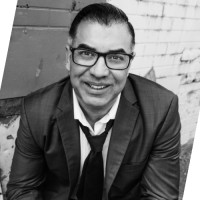Don’t miss a single show!
| Get the Invest Florida Show Mobile App! Click here—-> |
Apple |
Android |
|
 Motivation: it’s something every one needs. Whether it’s a financial drive or a spiritual one, everyone needs something that keeps them focused and real estate investors are no different.
Motivation: it’s something every one needs. Whether it’s a financial drive or a spiritual one, everyone needs something that keeps them focused and real estate investors are no different.
Setting investment goals is something that every investor does. But sometimes as investors, we find ourselves setting unrealistic investment goals or goals that may reap immediate rewards but lack long-term gain. Sometimes it can seem overwhelming trying to set manageable, realistic investment goals that can actually be leveraged into cashflow.
Investor, author and real estate investing mentor, Rod Khleif, believes in the power of actionable investment goals. By setting goals for himself that not only inspired him to become a successful real estate investor, they also empowered him to forge his path.
Rod was introduced to real estate investing early on. He managed to find success fairly quickly and, by 2006, had acquired thousands of properties across the U.S., including 800 in Florida.
Following the market crash however, Rod lost everything. Instead of accepting defeat, Rod took that as a learning opportunity. He realized that, while his investment goals had been earning him income, they did not lay the foundation for a successful, long-term cashflow strategy. Rod re-tooled his approach and, by aligning his investment strategy with philanthropic efforts, was able to form actionable, empowering investment goals.
The Key to Setting Investment Goals
- Daily routine/morning ritual
- Find personal drive in life, incorporate purpose into daily routine
- Keep family, personal and business life evenly balanced
- Write down goals
- Spiritual, not just financial fulfillment
Resources
- Tony Robbins – motivational speaker; psychology of success and self-empowerment
- Lifetime Cashflow through Real Estate Investing podcast
- How to Create Cash Flow Through Multi Family Properties
- Text “Rod” to 41411 (free copy of book)
- Website
For any other questions about setting investment goals to earn real estate cash flow, or to find out more about Rod’s mentor programs and investor education, check out his website!
Like this:
Like Loading...







